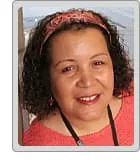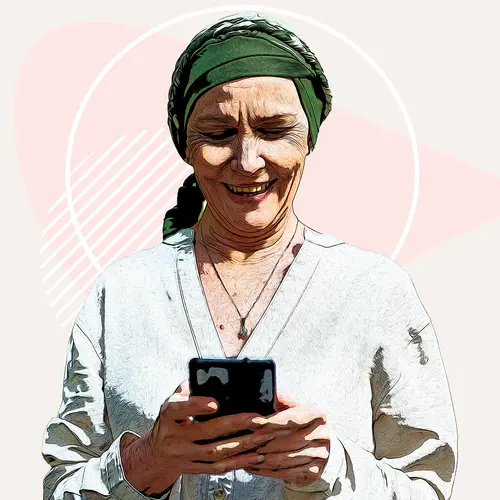
WebMD senior writer Miranda Hitti interviewed breast cancer survivors as part of a series for Breast Cancer Awareness Month. The series, called “Me & the Girls,” explores the personal stories of these women after they were diagnosed with breast cancer.
Breast cancer survivor Tammy Joyner, 49, lives in the Atlanta area. When Joyner was 45 years old, she went to see her gynecologist after noticing some breast changes -- aches and soreness that she wasn't used to.
"I said, 'Something's just not right,'" Joyner recalls. Her doctor didn't find anything of concern, but when Joyner had the same symptoms a month later, she went back to the doctor and asked for a mammogram. Joyner had had routine screening mammograms before, but it wasn't time for her annual mammogram. She got the mammogram anyway, and then had a biopsy.
Joyner was at work when she got the news. "I was supposed to get results back on Friday," she recalls. But when she hadn't heard anything, she called on Monday and demanded to be told what was going on.
The news that she had cancer hit her hard. "It's like being slammed against a wall and then being put in a Vise-Grip," Joyner says. "I was just beside myself." She says she thought of the cancer movie, Terms of Endearment, and thought, "Oh my God, that's not the way I want to go out. I have two sons... I was in a complete daze."
Joyner had no family history of breast cancer and was surprised to learn that that's the case with most breast cancer patients. "The doctor told me 60% of new cases are people who don't have histories," she says.
Telling her sons: Joyner's sons, Adrian and Brandon, were 12 and 7 years old, respectively, at the time of her diagnosis.
Joyner remembers telling Adrian, her older son, that she had cancer. "I was still in a jangle of nerves," she said. "He looked at me and was quiet for a minute. And he said, 'You're going to get through it, Mom... you will get through it.' There was no doubt at all. That was another... milestone for me, that he said that," Joyner says.
Joyner told her younger son, Brandon, that she might lose her hair because of her treatment. "He said, 'Daddy and I will shave our heads, too,' Joyner recalls. "I told them they didn't have to."
Surgery and reconstruction: Joyner had two tumors in her right breast. The smaller of the two tumors seemed to be more aggressive, and the tumors' locations made lumpectomy not an option.
Joyner had no signs of cancer in her left breast, or anywhere else in her body. She got that news on her first day of chemotherapy to shrink the tumors in her right breast. "I was so happy, I said, 'OK, let's get this party started.' That's literally what I told [my oncologist] and he started laughing," Joyner says. "Whatever it takes, I don't care. I'm going to deal with this, I'm going to go through it. I'm going to get to the other side."
After chemotherapy came surgery to remove her right breast.
Her doctors didn't find her original tumors in her breast. Her plastic surgeon called that a "miracle." Joyner says the cancer had shrunk to nothing.... I had a lot of people praying, so I know who was in charge of this."
During that same operation, the plastic surgeon took tissue from Joyner's belly to replace her right breast. That operation is more complex and has a longer recovery than getting implants for reconstruction. But Joyner didn't want implants. "I didn't want any foreign object in there," she says.
Letting go: Joyner says she would advise newly diagnosed patients to "get yourself in a mindset that will enable you to find some peace, whatever your diagnosis, even if you're in the last stages."
For her, that meant practicing the mantra, "Let go and let God" with things she didn't have the energy or strength to deal with. And she says that in a "weird" way, cancer was "one of the most life-changing gifts I've received."
She says she became calmer and worried less. Before cancer, she says, "I would tend to be a worrywart and just worry about every little thing." But cancer "really clarifies what's important for you," Joyner says.
"I wouldn't suggest that everybody go through something like that. But when you're faced with the idea of your own mortality... it helps you really cut through the crap and get to the meat of what you're here for."
Keeping busy, preparing herself for the days when chemo was likely to make her tired, and talking with other women who'd been through breast cancer also helped. "Knowing what to expect is very helpful. It helps take some of the edge and uncertainty away."
Share your breast cancer stories on WebMD's breast cancer message board.

